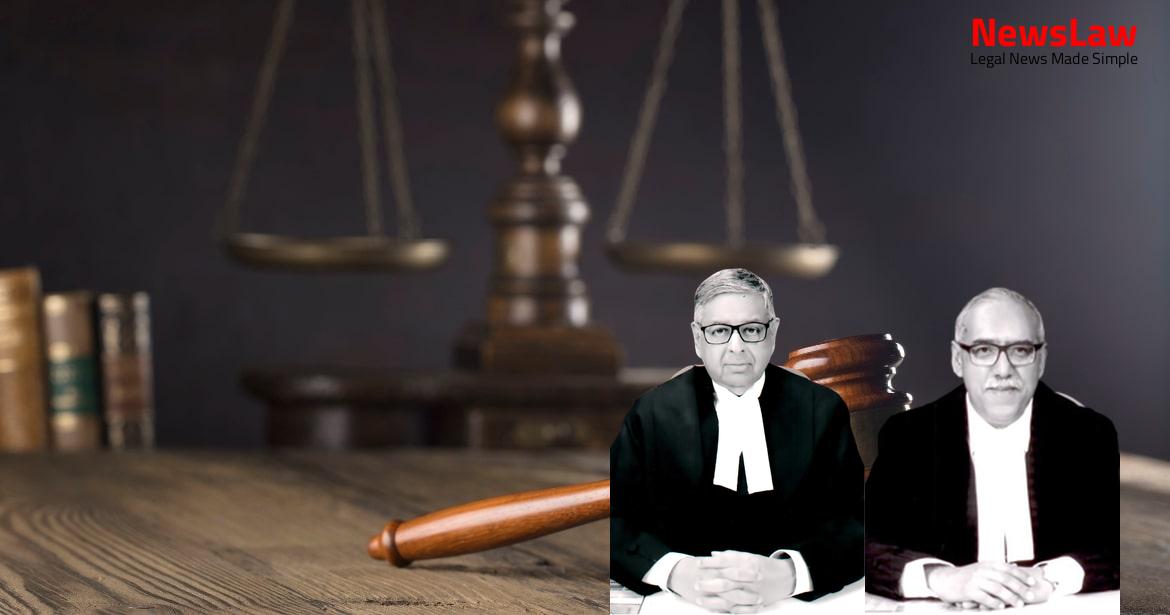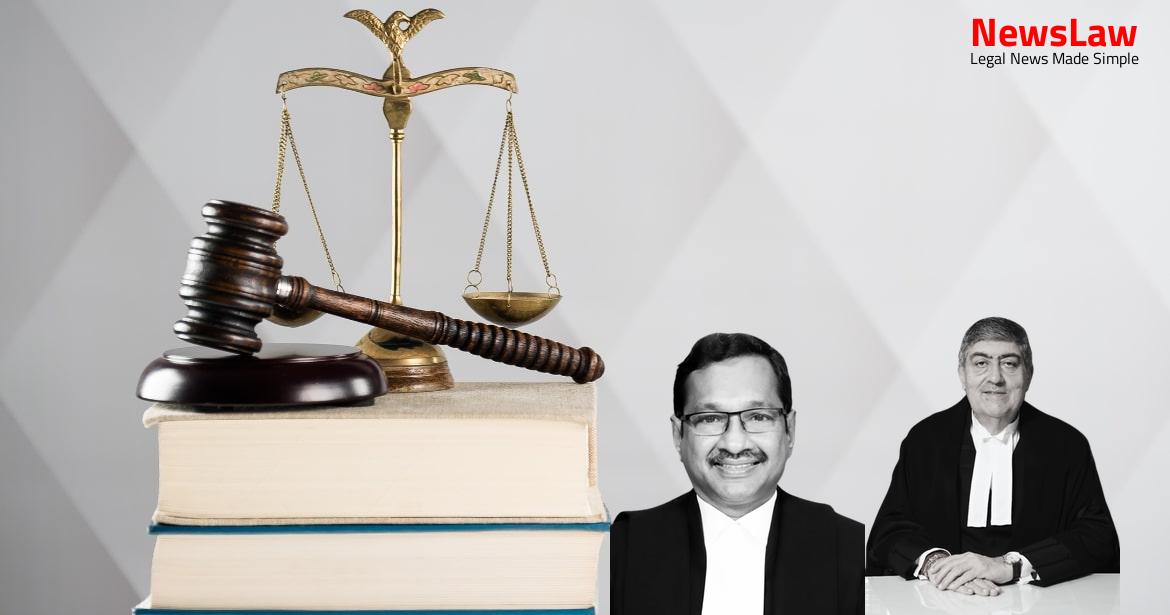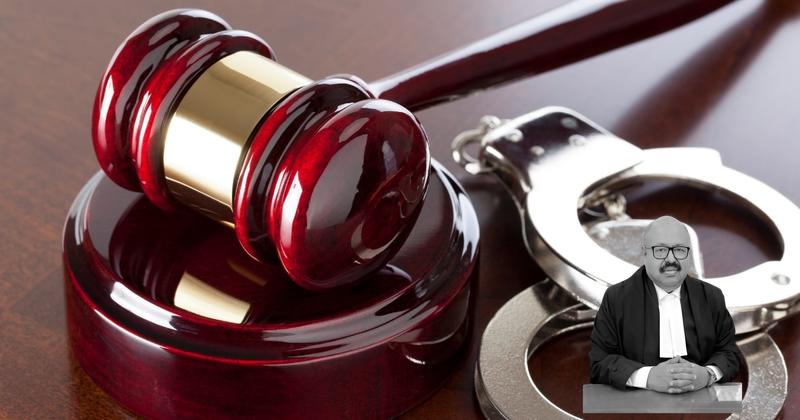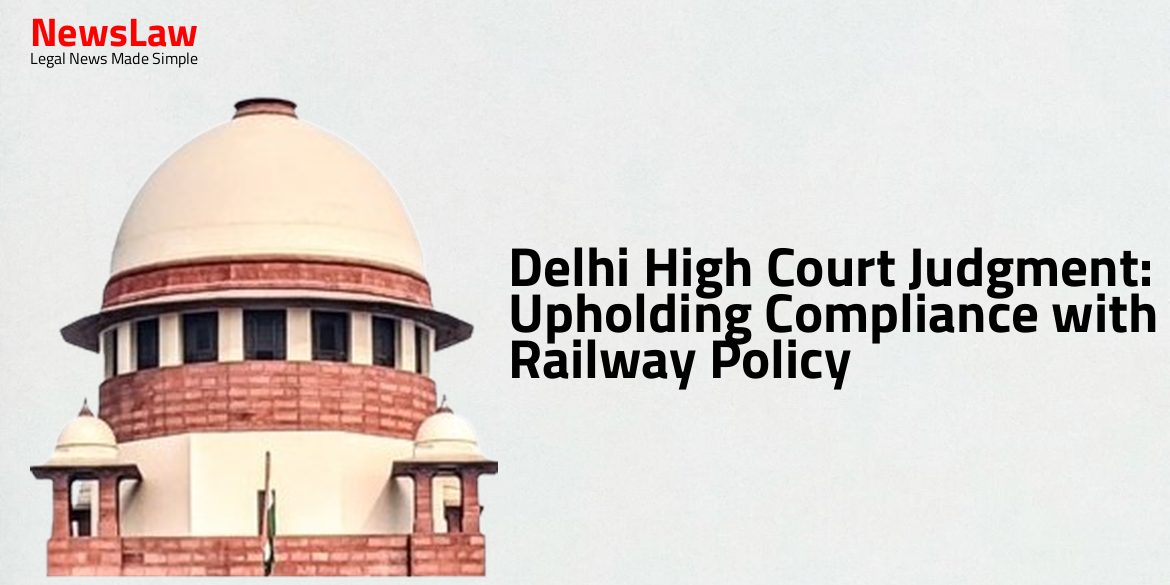In a significant ruling by the Supreme Court of India, the case of Sabari Corporation Vs. Defendant delves into the complexities of legal standing and property devolution after the dissolution of a partnership firm. The judgement holds implications for landlord-tenant relationships and the transfer of property rights. Explore the intricate legal nuances in this case involving Sabari Corporation and the Defendant.
Facts
- The present appellant is the successor-in-interest of the original plaintiffs who had initiated the suit in the name of a joint proprietary firm.
- The original plaintiffs terminated the lease in accordance with Section 106 of the Transfer of Property Act in September 2006.
- The original plaintiffs claimed their right to the subject premises after the dissolution of the partnership firm.
- The suit was filed by ‘Sri Sabari Corporation’ which consisted of seventeen individuals described as co-owners.
- The sole respondent’s mother was the lessee of the subject premises since May 10, 1978.
- The appellant is the current owner of the premises and was substituted in the appeal on January 7, 2010.
- After the mother’s death in 1996, the respondent became the tenant of the subject premises.
- The Trial Court decreed the suit for possession and mesne profit from the date of the termination notice.
- The suit was filed in November 2006 seeking delivery of vacant possession and mesne profit.
- The respondent successfully appealed before the High Court, resulting in the reversal of the Trial Court’s judgment.
- The suit was contested by the defendant on the basis that the plaintiffs did not have the legal relationship necessary to terminate the tenancy.
- High Court found that the original plaintiffs did not have locus in the case.
- The finding on the point of locus of the original plaintiffs was reversed.
- This reversal was a result of the appeal by the defendant.
Also Read: VVF India Ltd. vs. Employee Union: Wage Revisions & Benefits Case
Issue
- Original plaintiffs’ locus to institute the suit is the main question for determination in this appeal.
- The issue revolves around whether the original plaintiffs had the legal standing to file the suit.
- The court needs to ascertain if the original plaintiffs had the authority or right to bring the case before the court.
Arguments
- The defendant argued that there was no attornment and no public notice issued on dissolution of the firm as per Section 45(1) of the 1932 Act.
- The plaintiffs countered by invoking Section 35 of the Karnataka Stamp Act, stating that objections to admitted documents cannot be raised at the appellate stage.
- Citing the case of Dr. Chiranji Lal Vs. Haridas 2005 SCC 746, the defendant questioned the original plaintiffs’ claim on devolution of the subject premises.
- The plaintiff’s counsel mentioned the dissolution of Sri Sabari Corporation partnership firm, with notice recorded on 7.6.1985, effective since 7.12.1978 as per Ex.P-6, a form from the Registrar of Firm.
- The defendant did not deny this dissolution.
- In cases of sharing residual assets of a partnership firm, stamp duty equivalent to that of property transfer is not needed.
- Relying on S.V. Chandra Pandian Vs. S. V. Sivalinga Nadar (1993) 1 SCC 589 decision to support this argument.
Also Read: Legal Analysis of M/S Rajco Steel Enterprises v. Kavita Saraff: The Dynamics of Dishonoured Cheques
Analysis
- Original plaintiffs claimed ownership of the subject premises based on a family arrangement after dissolution of the partnership firm.
- The Trial Court found that the co-ownership of the property was constituted through a family arrangement.
- The defendant contested the suit by questioning the locus standi of the plaintiffs as landlords.
- The defendant argued that there was no proper conveyance of properties from the partnership firm to the plaintiffs.
- Documents presented by the plaintiffs were not adequately stamped which raised concerns about their validity.
- The High Court did not address the Trial Court’s findings on improper stamping of documents.
- The defendant’s defense included the lack of proper stamping of the co-ownership agreement.
- The dispute revolved around the transfer of property after dissolution of the partnership firm.
- The High Court did not discuss the Trial Court’s findings on the issue of attornment of tenancy.
- Notice of dissolution of the firm was given only in 1995, leading to confusion about the timeline and process of devolution.
- The High Court upheld the defendant’s argument regarding improper stamping of agreements.
- The plaintiffs’ claim of ownership was based on documents that needed further verification and explanation regarding the transfer of property from the partnership firm.
- Property acquired during the course of the firm’s business belongs to the firm unless stated otherwise in the partnership contract.
- Upon dissolution of the firm, each partner is entitled to their share of profits after settling accounts.
- In a case where the tenant challenges the derivative title of the landlord during tenancy, certain legal principles apply.
- Tenant estopped from challenging landlord’s title but can challenge an assignee’s title under specific circumstances.
- Tenant’s right to challenge an assignee’s derivative title is void if the tenant has attorned to the assignee by paying rent.
- A specific case of Sabari Corporation was referred to regarding partnership dissolution and property devolvement.
- If the lessor transfers the property leased or part of it, the transferee shall possess all the rights and may choose to assume the liabilities of the lessor as long as they own the property.
- The lessor will still be liable for any obligations under the lease unless the lessee decides to hold the transferee responsible.
- The transferee cannot claim any rent arrears from before the transfer.
- If the lessee unknowingly pays rent to the lessor after the transfer, they are not obligated to pay it again to the transferee.
- The transferee does not have the right to claim rent that was due before the transfer.
- The Court highlighted the principle that a previous decision of the Supreme Court in a similar case should be followed by lower courts unless there are strong and compelling reasons to differentiate.
- The judgement emphasized the importance of consistency in legal principles and adherence to existing precedents for maintaining the rule of law.
- It was reiterated that departures from existing precedents should be made only in exceptional circumstances where it is necessary to uphold justice and prevent injustice.
- The Court underscored the need for judicial discipline and respect for established legal principles in the interest of maintaining the integrity and credibility of the judicial system.
- The original plaintiffs have failed to establish their title to the subject-premises in the first two courts.
- The title to the subject-premises came from residue assets of the dissolved firm.
- In a landlord-tenant suit, the landlord is not required to prove his title in the subject property as in a title-suit.
- When a landlord’s derivative title is challenged, it must be established in some form.
Decision
- Appellant permitted to file application for additional evidence before High Court
- High Court requested to decide the appeal on remand quickly
- Appeal allowed based on specified terms
- Detailed analysis of title not necessary due to remand
- Judgment under appeal set aside and matter remanded to High Court for reevaluation of claims and defenses
Case Title: VINAY EKNATH LAD Vs. CHIU MAO CHEN
Case Number: C.A. No.-004726-004726 / 2010



